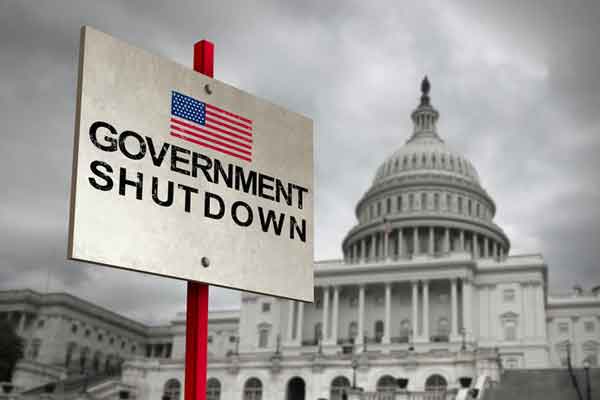Once again, the United States government teeters on the brink of a shutdown, a frustrating spectacle of political dysfunction that leaves millions of ordinary Americans in the lurch. It’s a scenario that has become all too familiar, and it’s one that has dire consequences for citizens who are already grappling with various challenges. In this article, we delve into the impending government shutdown, dissecting what happens when the government grinds to a halt and how it affects the lives of everyday Americans. The anger is palpable because the stakes are high, and it’s high time for our leaders to step up and do their jobs for the good of the nation.
What Happens During a Government Shutdown?
When Congress fails to pass a budget or a continuing resolution by the deadline, the government goes into shutdown mode. All “non-essential” federal agencies and services are forced to stop their operations. This includes critical functions like food safety inspections by the Food and Drug Administration, environmental protection inspections by the Environmental Protection Agency, and disaster relief efforts by the Federal Emergency Management Agency.
The impact of a government shutdown reverberates throughout society. Programs like Head Start for preschoolers and crucial food assistance initiatives lose their funding and come to a grinding halt. National parks may close, and services at beloved institutions like the Smithsonian museums and National Zoo hang by a thread, depending on funding availability. It’s a harrowing reality that millions of Americans are left to grapple with.
The Toll on Americans: A Nation Already Struggling
As the threat of a government shutdown looms, Americans who are already facing a myriad of challenges find themselves on the brink of an even more precarious situation. It’s an outrageous situation, and one can’t help but feel a deep sense of frustration.
- Financial Insecurity: Federal workers, the backbone of many essential government functions, face furloughs without pay during shutdowns. Even “essential” workers, such as those in the Federal Aviation Administration, are forced to work without compensation until the crisis is averted. This uncertainty creates financial instability, disrupts family budgets, and adds to the nation’s economic woes.
- Critical Services at Risk: Essential services like air travel, Medicare, and Social Security payments continue, but there may be delays. However, services like food safety inspections, disaster relief, and emergency medical personnel operations can be severely impacted. This jeopardizes the safety and well-being of American citizens.
- Education and Welfare Programs: Shutdowns have dire consequences for education. Children from low-income families lose access to vital Head Start preschool programs, and college students may experience delays in their student loans. Programs like WIC (Special Supplemental Nutrition Program for Women, Infants, and Children) lose funding, affecting the nutrition and health of countless families.
- National Parks and Recreation: Shutdowns threaten the closure of national parks, limiting outdoor recreation opportunities for Americans. This not only hampers our enjoyment of public lands but also impacts tourism and local economies.
- Passport Delays: Travelers may face delays in receiving passports, potentially impacting personal and business travel plans.
- Economic Fallout: The economic repercussions of a government shutdown are substantial. The U.S. Travel Association estimates that the travel economy loses as much as $140 million per day during a shutdown, affecting businesses and jobs across the country.
Conclusion: A Call for Accountability and Action
In the face of these harsh realities, it’s impossible not to feel a sense of righteous anger. Americans deserve better. It’s high time for our elected officials to put aside their differences and prioritize the needs of the nation. Government shutdowns are not merely political theater, they have real, devastating consequences for ordinary people. The fact that these shutdowns have become a recurring spectacle is a failure of leadership and governance. In my personal opinion if they can’t do their job then they should not be paid during the duration of the shut down…very simple.
It’s incumbent upon our elected representatives to find common ground, make the necessary compromises, and pass budgets and continuing resolutions on time. If they can’t then they want get paid, I always thought that would help with the constant threat of a shut down because as normal hard working Americans if we do not do our job we don’t get paid. The anger is justified, and it’s a call to action. Our nation deserves better than this cycle of dysfunction. It’s time to do better, to get things done, and to put the needs of Americans above partisan bickering.

